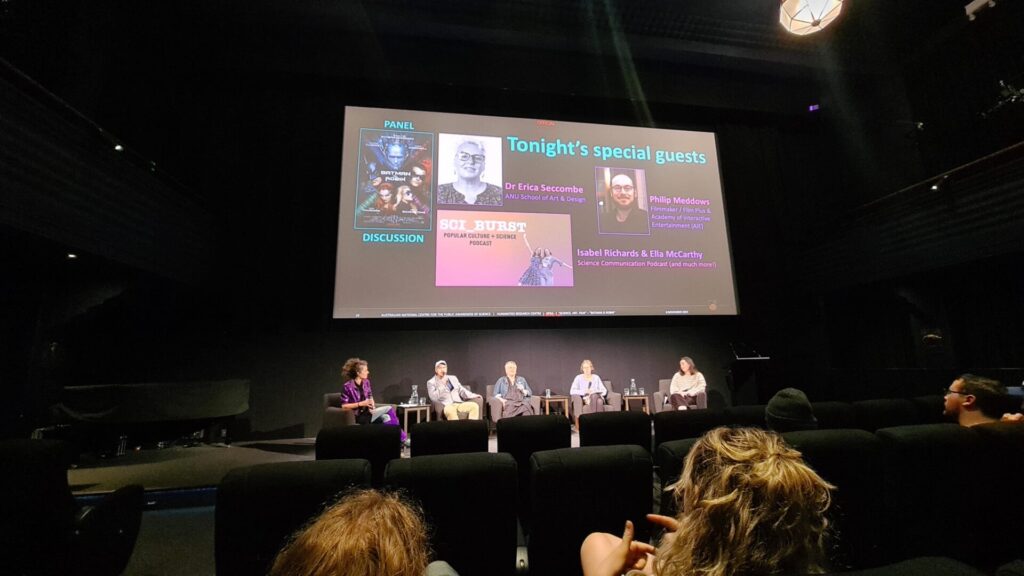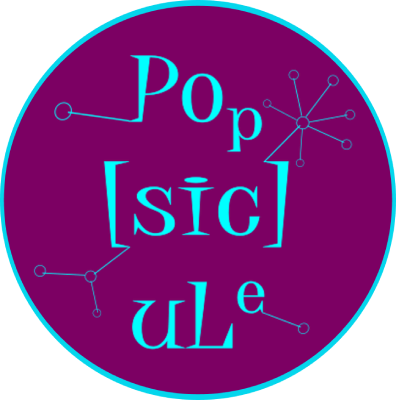
**Breaking news: Discover our brand-new ‘Science goes pop’ articles on the w/k website!**
“Science goes pop” event – May and July 2025, Smith’s Alternative in Canberra
We bring together six Canberra artists and six comics researchers as they explore the power of comics to communicate science.
This “Science goes Pop” event invites you to join 6 Canberra-based artists and 6 comics scholars in exploring the power of science through the medium of comics and illustration. Discover what scholars from Canberra, Sydney, Yokohama and Tokyo have to say about comics in 6 lively short, 15min impulse presentations, which will be turned into and visually activated in novel artworks by the artists (and launched together at a later event).
This event will be moderated by Houl and Dr Anna-Sophie Jürgens (ANU)
Pop culture is rocket fuel for science communication. Pop culture is where collective understandings of science are created, stereotypes of scientists are generated, and attitudes towards science are shaped. It is therefore really important to explore how our scientific and technological past, present and future are imagined in media such as comics, street art or (animated) film! The stupendous (inter)connections between science and popular culture teach us about the status of science as a cultural force – science in and as culture – and about the ways science has excited the public imagination.

Science in Pop Culture and Comics talk, 22 June 2025
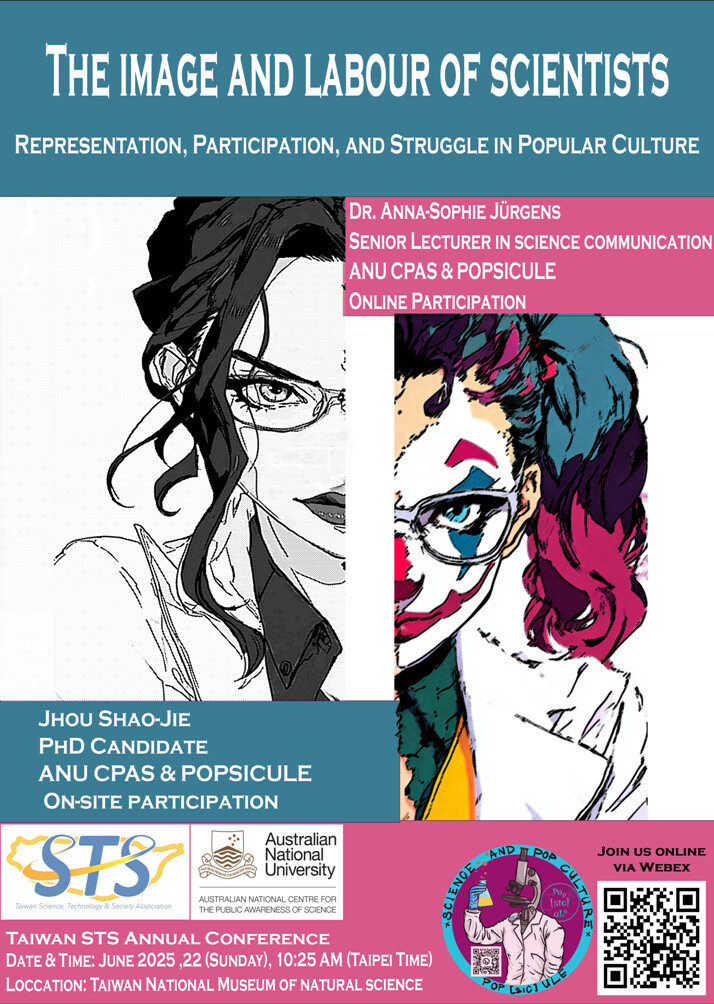
Who’s practising science in comics, how, and why? And why does it matter to reflect on these questions? That’s exactly where our recent panel took the spotlight – diving into the curious realm of “clown science” through the chaotic lens of the Joker and pop culture’s portrayal of scientists.
We explored the ways scientists are not just represented but entangled in narratives of brilliance, madness, resistance and absurdity. Whether it’s the anarchic genius of the Joker or the lab coat-clad heroes and anti-heroes of graphic novels, science is often twisted, glorified or weaponised and that reveals a lot about our cultural psyche.
Why does it matter? Because these portrayals shape how we think about science and scientists: who gets to wield knowledge, how it’s perceived by society, and the struggles behind the pursuit of truth. Reflecting on these themes helps us confront real-world issues like exclusion in STEM, the myth of the “mad genius” and the tension between creativity and credibility.
In short: comics don’t just entertain – they provoke. And when science enters the frame, things get messy, meaningful and marvelously mischievous.
We gave this talk on 22 June, online on Webex (1.25pm AEST) as part of the Taiwan STS Annual Conference.
“Science goes pop” workshop in Cologne, 18 November 2024

Our workshop brought together researchers and students interested in pop culture studies as well as science communication and knowledge transfer from several continents to explore how the two fields can support and advance each other. In particular, it sought to understand the potential, pitfalls and promises of pop culture to convey meanings of science and to engage audiences with research that might otherwise not be reached by conventional means of science communication.
Pop culture shapes our thoughts, feelings, understanding and relationship with science. From movie and TV shows to books, comics, street art and beyond, pop culture has a profound impact on how we perceive, engage with, and even participate in scientific exploration. To unpack these topics, we met on 18 November 2024 at the Erich Auerbach Institute for Advanced Studies (University of Cologne) for our “Science goes Pop” workshop, supported by AlumNode. We are Professor Stephan Packard (University of Cologne), Dr Torsten Weber (German Institute for Japanese Studies, Tokyo), Dr Anna-Sophie Jürgens (Australian National University, Canberra) and Crystal-Leigh Clitheroe (Australian National University, Canberra). In fact, our workshop was truly international, with participants from France, the Netherlands, the UK, Turkey, Greece and China.
After the introductions and the contextualisation, our discussions revolved around the following questions:
Within the wide range of existing pop culture formats (e.g. film, anime, music, comics, manga), what do different media formats promise for exploring and reflecting on scientific information beyond mere entertainment, and why?
What forms of collaboration between experts in both fields can contribute to a successful interaction between pop culture and science?
How can science communication through pop culture challenge and change pop culture and vice versa? What are the risks of potential misuse or manipulation?
In addition, we explored questions such as: How is trusting science challenged using pop cultural means? How do we challenge and educate about failure and vulnerability of (science) language? In our conversations, we realised that agency, spectacle, vulnerability and proximity/distance are key concepts at the interface of science and science communication that are reflected, shaped and challenged in and by pop cultural contexts.
Framing the Unreal Conference – our panel on ‘Science in Comics’ – November 2024, Venice
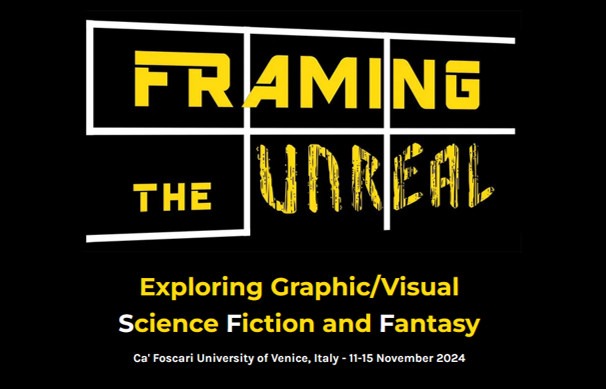
We organised the panel “Unframing the Real: Science in SFF Comics” at the 2024 “Framing the Unreal” comics conference in Venice! Our speakers explored how cultural representations of the procedures and processes of science produce and present an image of science that does not always have much in common with ‘real’ science – and what we can learn from science in comics about science. They discussed how science is the origin of super-protagonists, science in non-mainstream comics, and the power of laboratories to shape our ideas of science.
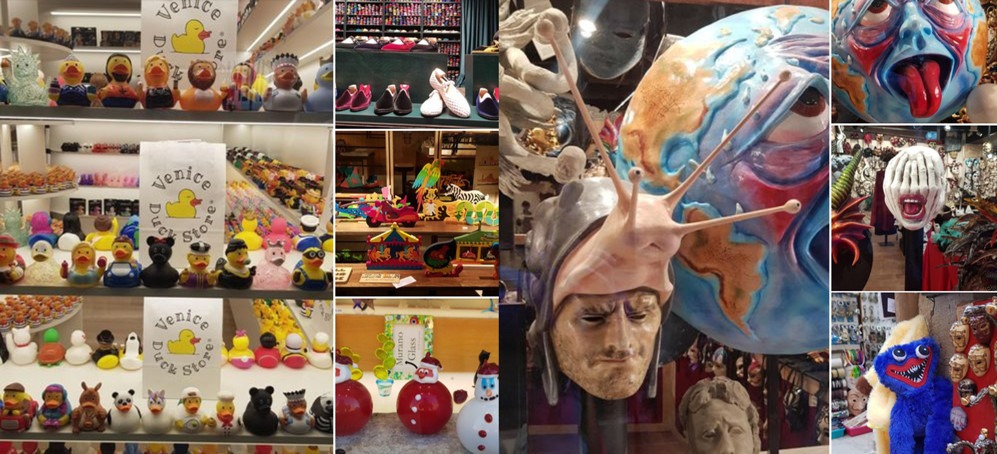
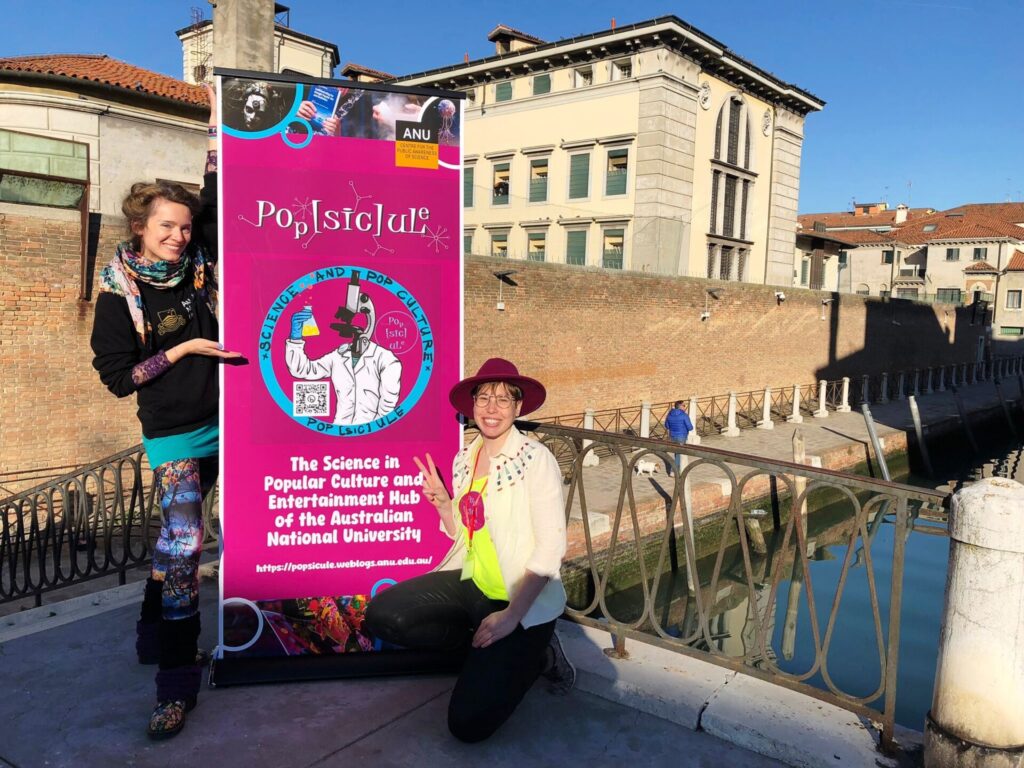


Screening & Discussion of “Spider-Man: Into the Spider-Verse” – 18 September 2024
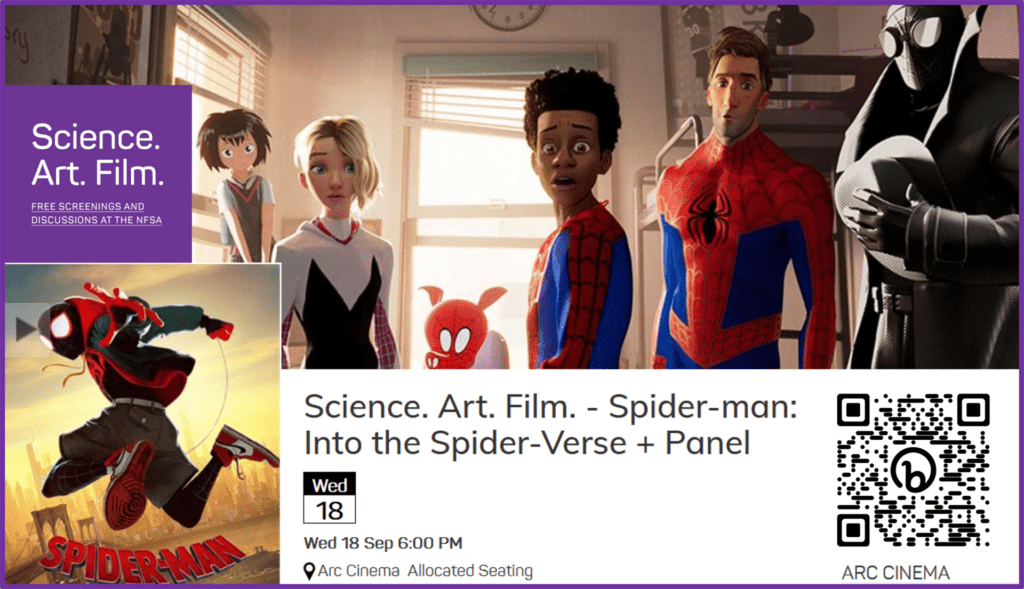
Brooklyn teenager Miles Morales (Shameik Moore) becomes Spider-Man after a radioactive spider bite. With the villainous Kingpin (Liev Schreiber) threatening chaos across realities, Morales must overcome his self-doubt and join forces with Spider-People from other dimensions, including a down-on-his-luck Peter Parker (Jake Johnson) and the determined Spider-Gwen (Hailee Steinfeld). Winner of the Academy Award for Best Animated Feature in 2019, Spider-Man: Into the Spider-Verse has been acclaimed as one of the most inventive superhero movies in years. After the film we had a colourful panel discussion exploring the portrayal of spiders and science in Into the Spider-Verse and the role of comic art in storytelling.


Comic-Con Canberra – 24/25 Aug 2024
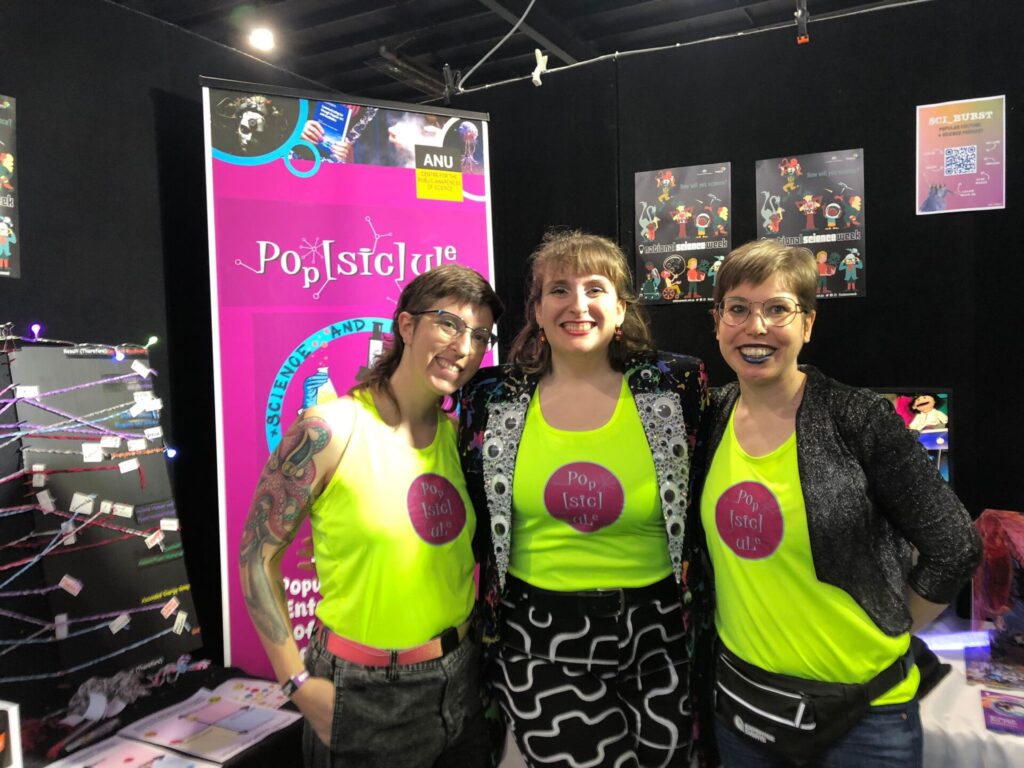
In August 2024, we were part of Comic-Con Canberra, chatting with the Canberra community about science in pop culture and celebrating costumed creativity – from Spider-Mans to Batmans! – with Crystal-Leigh Clitheroe and Jesse Everett, Karina Judd and Sarah Barnes! Supported by National Science Week.
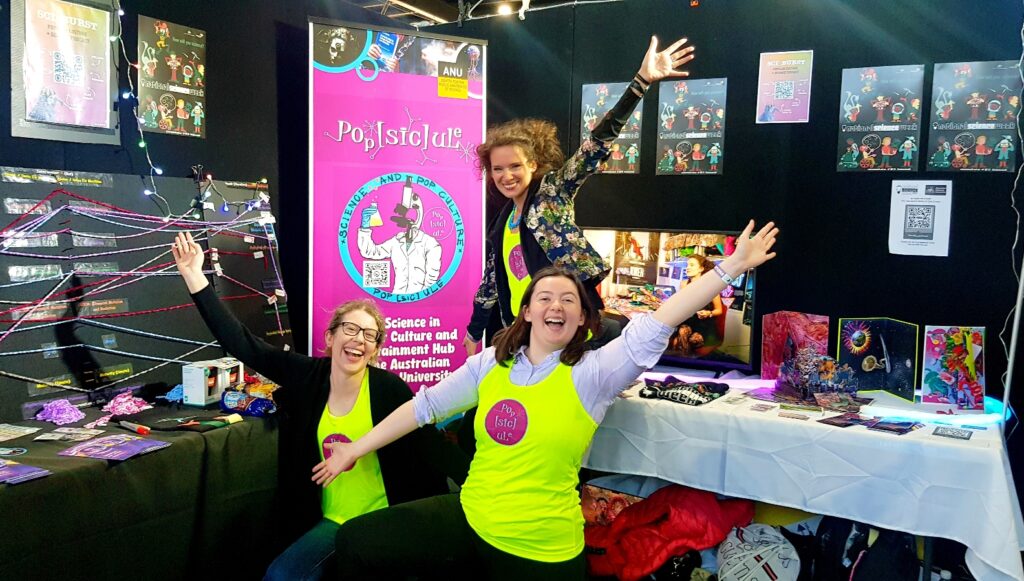
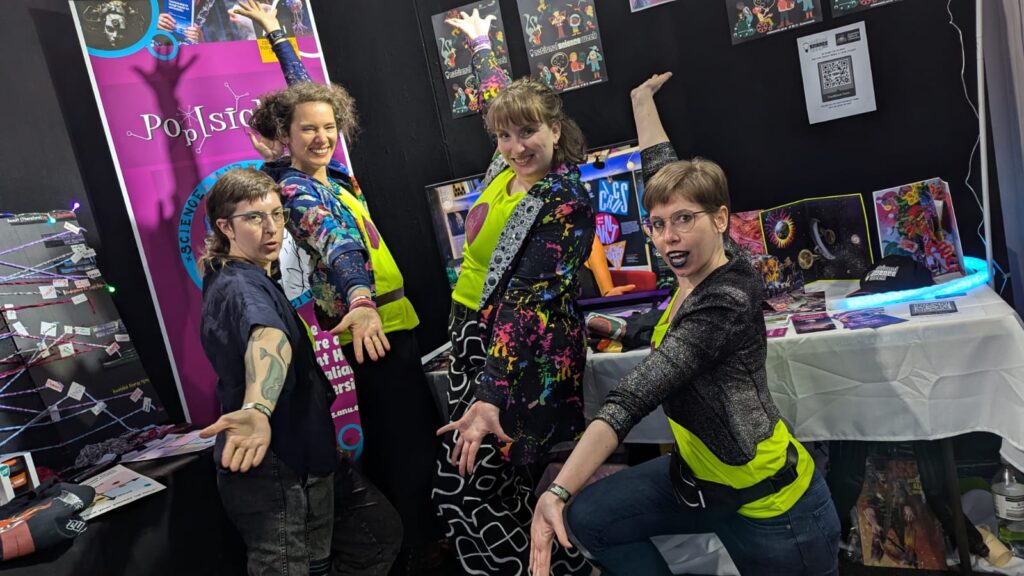
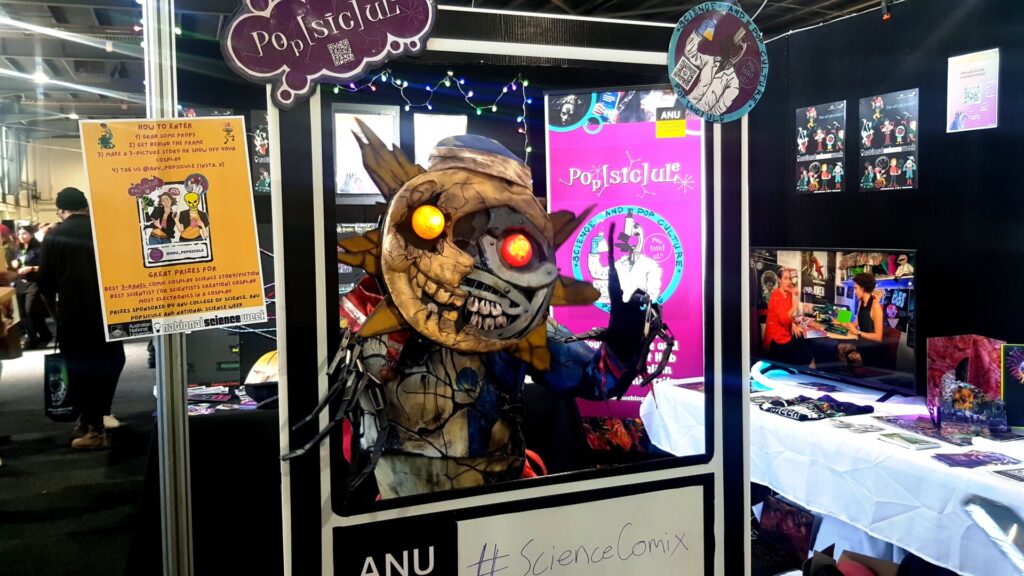
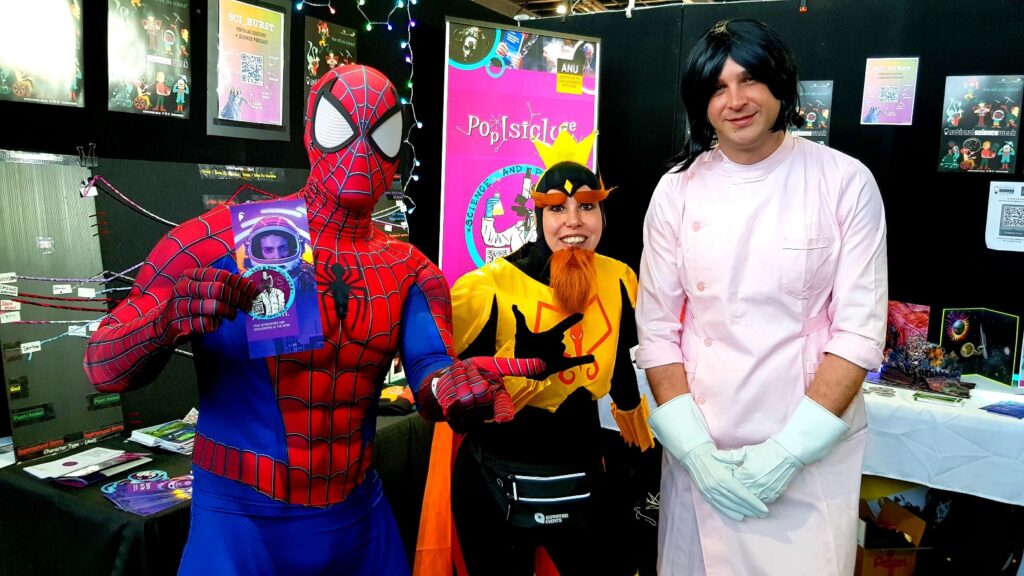
Screening & Discussion of “Batman and Robin” – Nov 2023
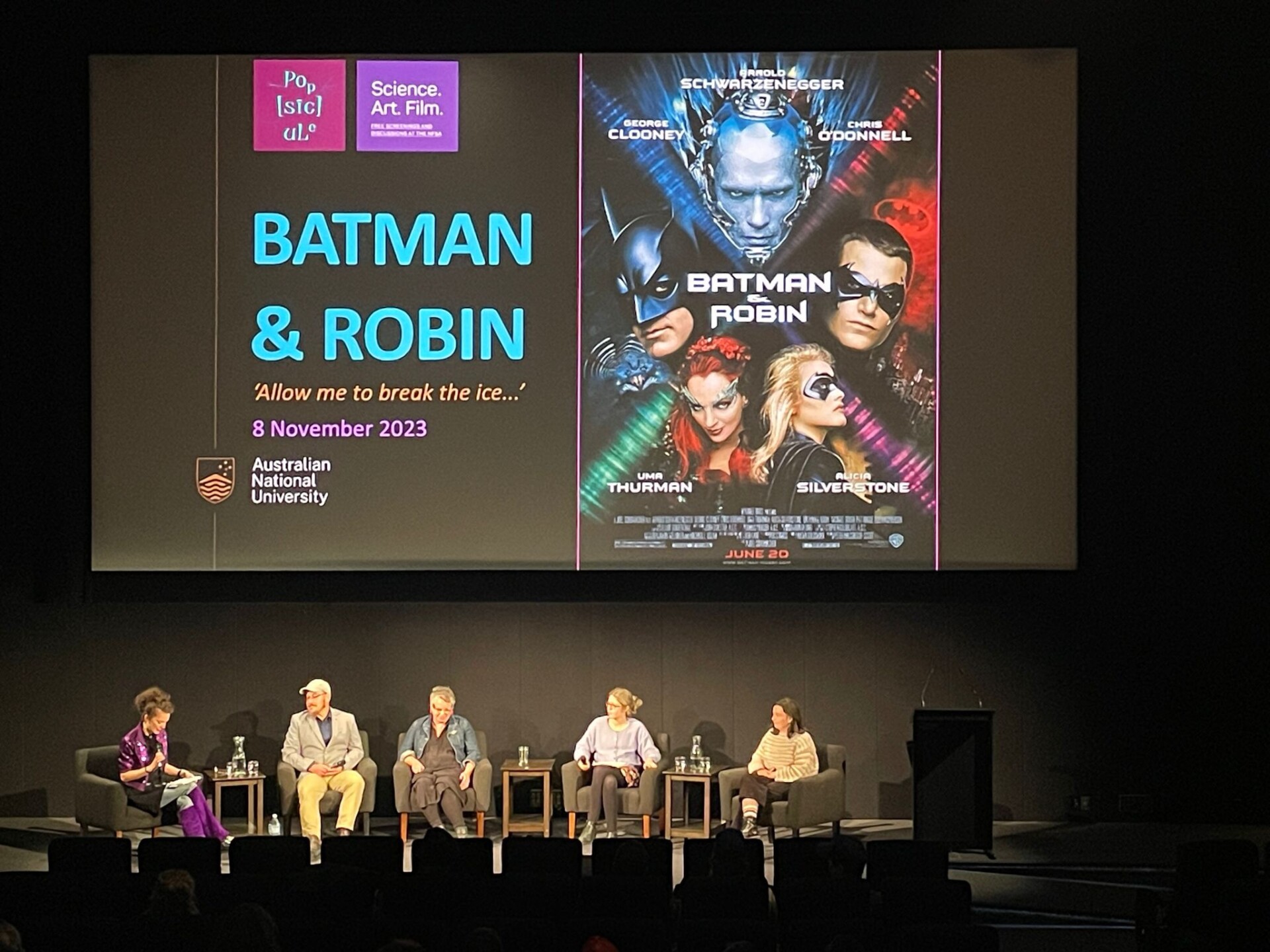
We discussed the science and scientists in “Batman and Robin” as part of our “Science. Art. Film.” series. Find out more about this event here.
